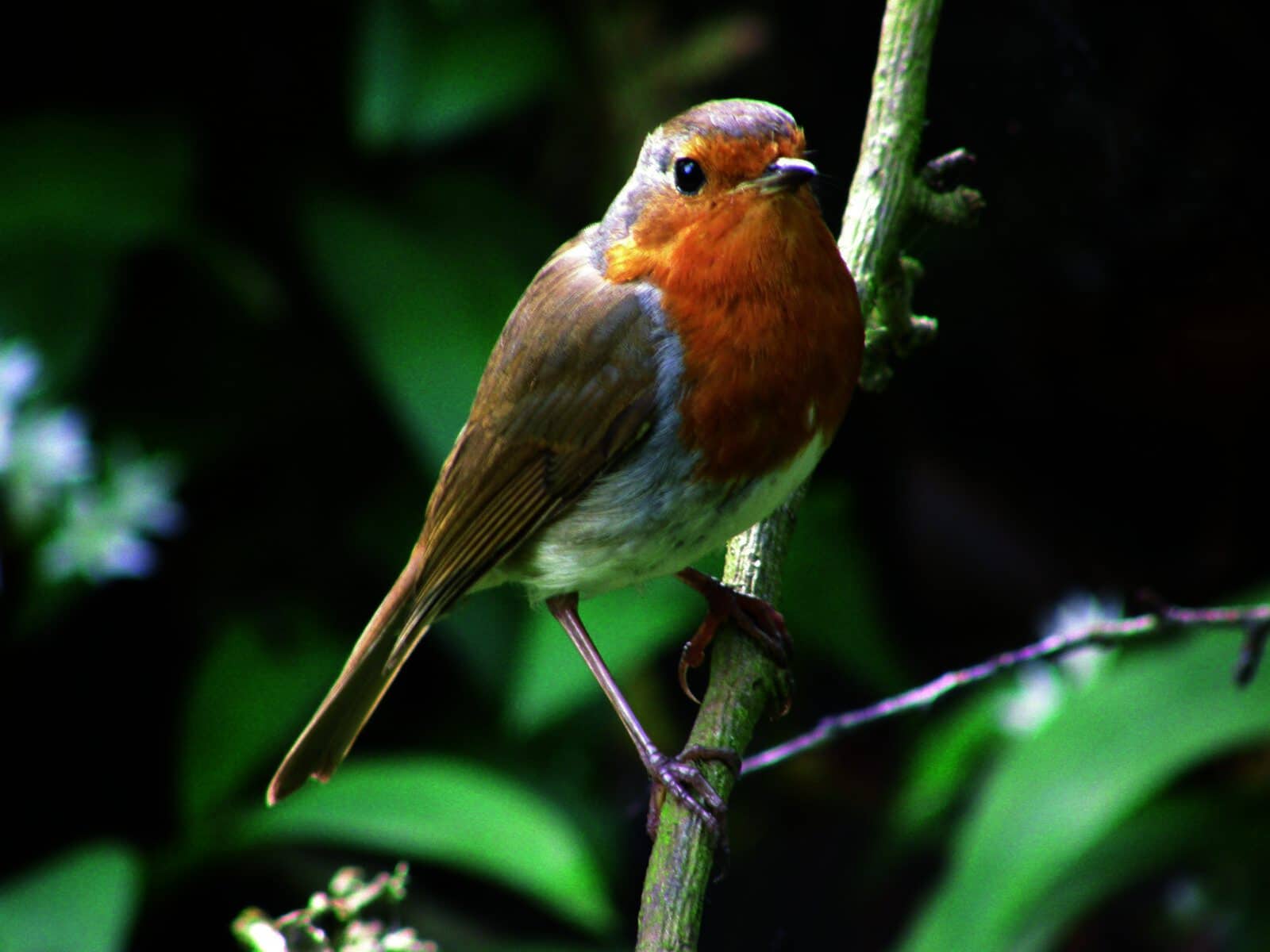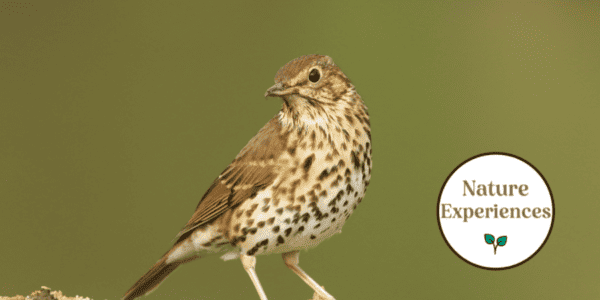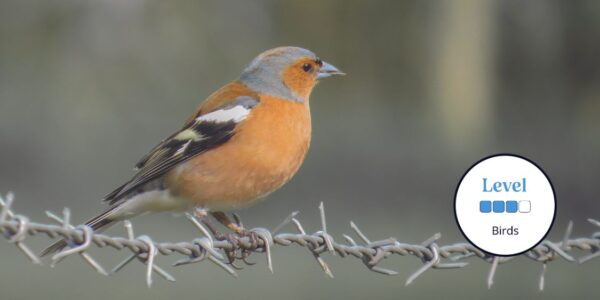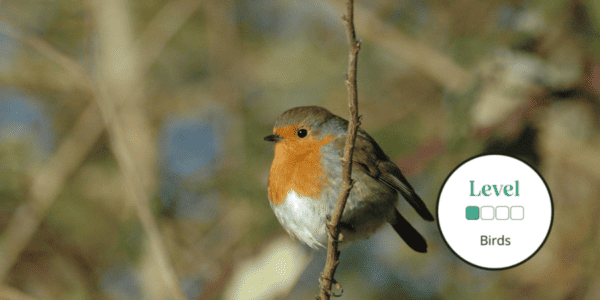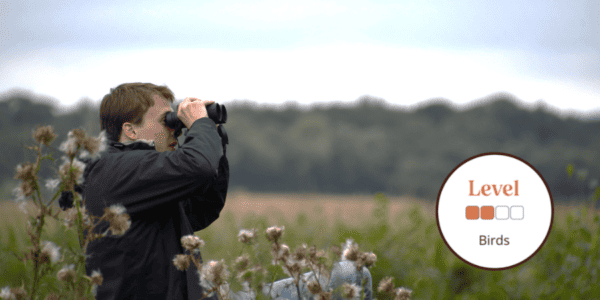Expand your knowledge of the diversity and ecology of songbirds and the processes that will enable you to identify them and use your skills for all-important recording and conservation.
This course will be delivered through a range of methods including practical field work, laboratory identification sessions and seminars with our expert tutor. Birds are an important indicator species – their presence is considered a good measure of the health of the environment and accurate identification data is essential in monitoring these telling population trends.
Spring in the Welsh Borderlands is a the perfect time to hear and observe songbirds in all their glory, with the course providing you the opportunity to practice your new skills in the countryside surrounding the Preston Montford Centre. The Centre is nestled in the heart of Shropshire surrounded by a broad range of habitats, including the River Severn and semi-ancient woodland, with views disappearing into Wales.
There are two booking options which all include course tuition, meals, and refreshments:
- Non-Resident (Breakfast not included)
- Resident (Sole Occupancy)
For course bookings including accommodation please note that bathroom facilities may be shared.
Tutor: Kevin Clements
Kevin Clements is a County Bird Recorder and Deputy Chairman of the West Midlands Bird Club. An experienced field ornithologist and naturalist, he has worked for many organisations in conservation and biological recording. Birding has taken him throughout the country and inspired him to pass on his knowledge and love of birds to others.
Example Timetable
Example Timetable
This timetable is subject to change but should give an outline of what to expect.
If you have booked accommodation with the centre your bedroom will be ready from 3.00 pm onwards on the day of arrival and we ask that you vacate by 9.30 am on the morning of departure.
If numbers are sufficient a station pick up will be arranged at 5.30 pm from Shrewsbury Station.
Please arrive in time for the evening meal at 6.30 pm
The course starts after dinner with a classroom session 7.00 pm - 9.00 pm
The course ends at 4.00 pm on the final day.
Time will be made available for eating packed lunches during the day.
Friday:
19:00 Lab. What is a Songbird?
Background to classification & morphology
Assignments
Saturday:
09:00 Lab. Equipped for a day in the field, including packed lunch:
AM: Earls Hill (Shropshire Wildlife Trust)
PM: Venus Pool (Shropshire Ornithological Society)
Dinner
19:00 Lab. Introduction to Bird Song
Sunday:
05:30 Darwin common room equipped for an hour or so listening to and identifying birds in Preston Montford grounds
Breakfast
09:30 Lab. Recording techniques
Exercises
Field recording
Lunch and breaks as required
16:00 Lab. More bird song
Dinner
19:00 Lab. Records and recording schemes
Introduction to MacKinnon List Technique
Monday:
09:00 Lab. Equipped for a morning in the field: MacKinnon List survey at Benthall Edge Wood, Ironbridge
Lunch
13:00 Lab. Analyse MacKinnon List survey results
Course Review
14:15 Assignment 1 (1.5 hours)
16:00 Finish
What's Included
What’s included?
- Classroom learning covering the theory of the subject
- Field excursions to apply new knowledge
- Expert tuition for which we are renowned
- Clear objectives and progression
- All meals provided
You can rest assured that the absolute best content from an expert in environmental education will be provided. In choosing this course, you will be joining thousands of people who learn with us each year.
Before You Attend
There will be a member of staff with first aid training and access to a first aid kit on site. If you have special medical or access requirements, please let us know as soon as possible so we can make any necessary adjustments.
What to Bring
- Binoculars are essential, preferably between 8x30 and 10x50 – 8x40 are ideal, but miniature binoculars are not suitable.
- You may wish to bring a telescope if you have one, but this is not essential.
- Field Guide – you will need one for the Class Test.
- Notebook and pen/pencil.
- Warm waterproof clothing and footwear, but not too brightly coloured or rustly.
- Warm hat and gloves for inclement weather and sunhat and sun cream for sunny days
- A sandwich box, flask and/or water bottle and a rucksack or similar to carry your kit.
Recommended Reading
Any background reading is useful and most birding magazines have good identification articles. The following books are recommended:
- Beaman, M. and Madge, S. (1998) The handbook of Bird Identification for Europe and the Western Paleartic. Helm
- Sample, G. (2006) Wildlife Sounds: Britain and Ireland. Collins
- Sample, G. (2006) Bird Songs and Calls of Britain and Northern Europe. Collins
- Snow, D.W. and Perrins, C.M. eds. (1998) The Birds of the Western Palearctic. Oxford University Press
Sorry this course booking is closed

